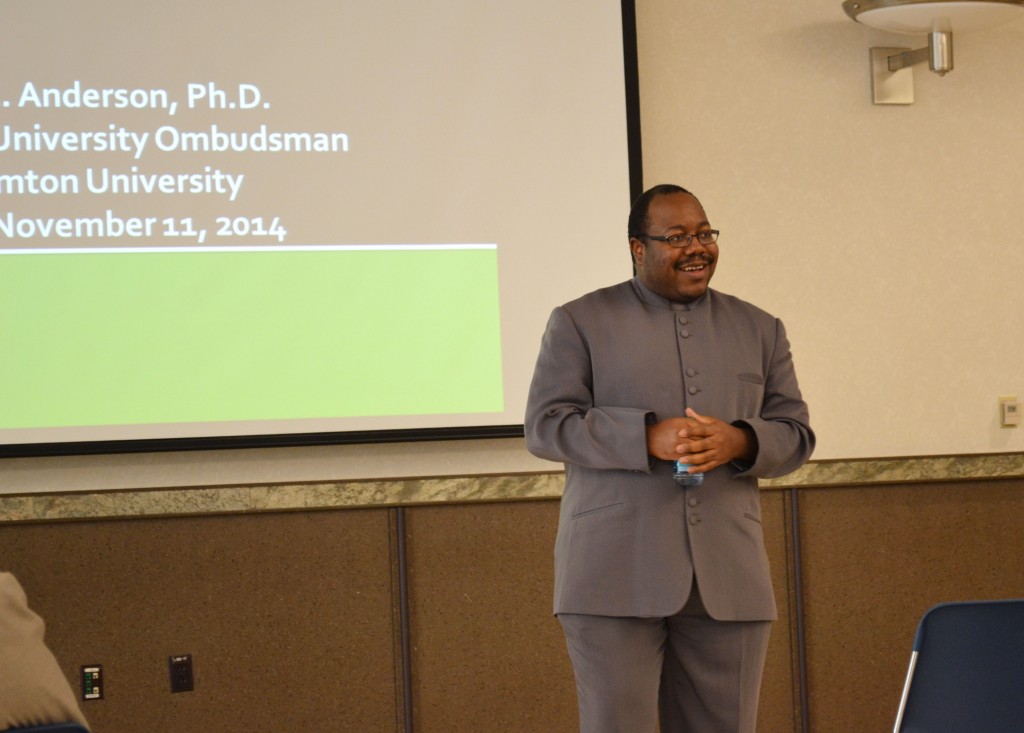
Binghamton University needs a new ombudsman. And on Tuesday afternoon, the first candidate for the position came to campus not to mediate an argument, but to present one: why he is best for the job.
The primary responsibility of the ombudsman, a position previously held by Dawn Osborne-Adams, is to provide confidential, impartial and informal assistance to all students, faculty and staff. The office assists both individuals and groups in managing conflict and resolving problems by providing an outlet to gather thoughts and explore options, all while maintaining a strict confidentiality clause.
All candidates are required to participate in “University Ombudsman Roadmap to Premier: Goals, Opportunities and Challenges in a Dynamic and Multifaceted Organization,” where they will present their plans to help BU grow.
Bernard Anderson, the current ombudsman at Kennesaw State University, was the first candidate to present and will be followed by other candidates in weeks to come.
In his talk, Anderson highlighted engagement, creative activities, strategic investments and fostering a learning community. He said that he would educate the campus community about conflict resolution, and improve team cohesion within departments.
“As we work towards becoming a premier institution, the ombudsman is the advocate, not for a specific group but for the abstract,” Anderson said. “He or she is an advocate for fairness, equality and equity in a healthy work environment.”
Celia Klin, a member of the search committee and associate dean of Harpur College of Arts and Sciences, said it is a critical position on campus that can provide a means to mediate conflicts before they escalate.
“It’s a really important position because it is a resource used by students, staff and faculty,” Klin said. “It’s also a position that has the potential for addressing issues before they get too big.”
Anderson said that the ombudsman will provide an even playing field for both students and employees who may feel overwhelmed.
“The ombudsman is the great neutralizer,” Anderson said. “It provides symmetry of power. Being an early warning system to the University is another tangible benefit of an ombudsman. It operates at the lowest levels possible before [the clashing parties] rise up any further than they have to go. ”
According to Pamela Mischen, the faculty adviser to the president, associate professor in the department of public administration and a member of the ombudsman search committee, the University is seeking a candidate who can both manage the many jobs an ombudsman must fill and bring a unique perspective to the position.
“The ombudsman works independently of everybody else,” Mischen said. “The position is what the individual brings to it. We’re looking for someone who can balance the roles of being the reactive person who’s in the office and listens to problems and tries to solve them with someone who is at the other extreme, really out there and advocating for policy changes. You need to fill both roles.”
Ultimately, Klin said, the position was an important part of managing the University’s expanding community.
“I think it’s a very critical condition especially at a university that’s growing; sometimes it’s hard for people to know where to go when they’re having difficulties,” Klin said. “It’s a really nice central place that can be helpful both itself as well to refer students faculty and staff to other resources.”


